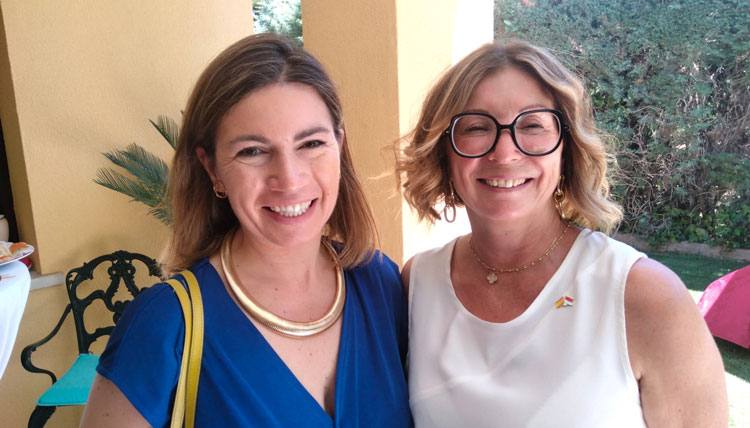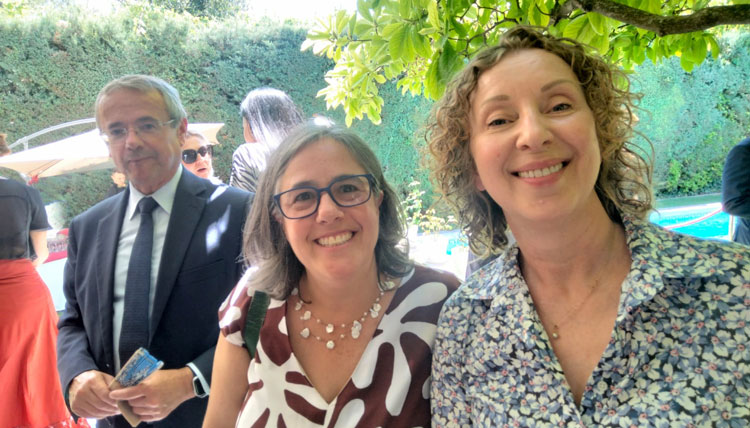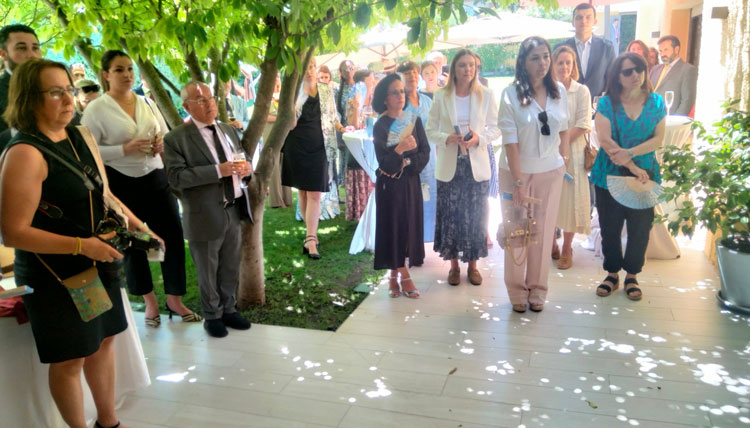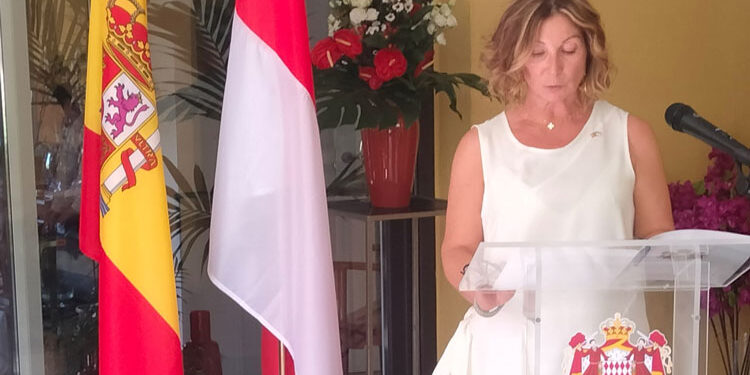Luis Ayllón
Monaco’s ambassador to Spain, Catherine Fautrier-Rousseau, assured that the Principality will take measures and do everything possible to get off the “grey list” of tax havens on which it was recently included by the Financial Action Task Force (FATF).
Catherine Fautrier-Rousseau made this statement during a speech on Thursday at a reception at her residence in Madrid to celebrate the 19th anniversary of the enthronement of Prince Albert II.
The Ambassador began by recalling that 5 October of this year marks the 20th anniversary of Monaco’s accession to the Council of Europe, and that, as of December, it will chair the Committee of Ministers of that body, in its “Human Rights” formation.
She also recalled that in 2024 Monaco will celebrate the 75th anniversary of its accession to UNESCO and, noting that the Principality of Monaco is part of the international community and the European family, said: “More than ever, we have a duty to unite and defend peace in Europe and throughout the world. That is why Monaco participated on 15 and 16 June in the Summit for Peace in Ukraine, which was organised in Switzerland”.
The ambassador regretted the decision taken a few days ago by the Financial Action Task Force (FATF) to place the Principality under increased surveillance and put it on the “grey list”. However, she underlined that the FATF highlighted the very significant progress made by Monaco on almost all the recommendations made to it. “In particular,” she said, “the organisation highlighted the strengthening of the means to combat the financing of terrorism, the creation of a new financial intelligence and supervision authority, the introduction of targeted financial sanctions, etc.”
Catherine Fautrier-Rousseau indicated that a timetable has been drawn up to enable Monaco to implement by January 2026 the few remaining FATF recommendations, which she said are already underway and will be finalised by the deadline. “Monaco – she emphasised – reaffirms its determination to implement these recommendations so that the Principality can fully comply with the international financial regulatory bodies. There is no doubt that Monaco’s place is not on the grey list and we will do everything we can to get off it.
The Ambassador went on to mention the recent visit of Prince Albert II to the Cantabria-Prince Albert I of Monaco Rock Art Centre, named in recognition of the commitment and involvement of his great-great-grandfather, Albert I, in archaeological discoveries in Cantabria. “The ties of friendship and collaboration between Spain and Monaco go back several centuries and we share a common history, as we do with our neighbours France and Italy,” said Catherine Fautrier-Rousseau.
The ambassador further noted that Monaco’s small size and its institutional particularities have forced the suspension of negotiations on the association agreement with the EU, but assured: “Europe is and will remain our family and the international community is and will remain our partner. Prince Albert II is fully committed to this point”.
She added that the Principality of Monaco has existed for more than seven centuries (1297) and is a model in many areas, such as more than 140 nationalities living side by side, with the greatest respect for cultural and religious differences; and that it is the only country in the world that has expanded its territory without ever going to war with its neighbours, building on the sea and taking the necessary measures to protect the environment.
“We owe all this to our Princes, who over the centuries have worked to ensure that this development is built on values that we still defend,” she said.
The reception was attended by numerous European and other ambassadors, together with representatives of Spanish civil society, and the ambassadors’ introducer from the Ministry of Foreign Affairs, María Sebastián de Erice.










